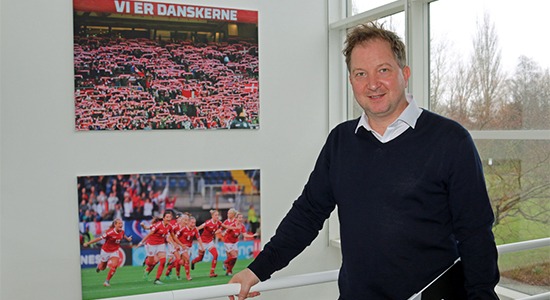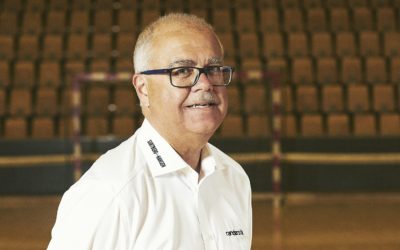Nicolai Kaas Nordstrom, League Director of the National Women’s Football League in Denmark, has many different roles within the League. With that being said, his main focus is on creating awareness of the women’s football (soccer) league in Denmark. In order to do so, he has closely monitored other successful leagues in areas like North America and Spain where women’s soccer is deemed as a success! I had the opportunity to interview Nicolai and learn more about what it takes to build a community around a women’s league in Denmark, where it has not always been so popular. Through his work, and the UEFA mantra, “inspire the girls to dream”, Nicolai works every day to ensure that females have the opportunity to play in Denmark! Join me as he speaks more about his goals and objectives, and how he intends to reach them. Enjoy!
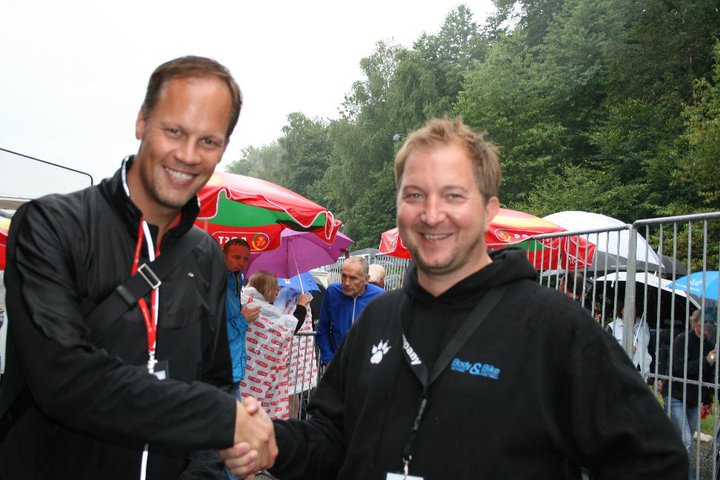
Please note: The interview with Nicolai Kaas Nordstrøm was conducted via a typed conversation in Danish. Editing changes were made to make it easier to read in English while maintaining the voice of the interview. We’ve also given you a version of Nicolai Kaas Nordstrøm’s answers in Danish. As English is our native language, please be advised there may be some honest errors when/if you read it in Danish.
Tell us about your role as the League Director with the National Women’s League in Denmark.
My role is being in charge of building the structure as well as the development of the national Danish women’s league. At the moment we are focusing on the organization/administration part that has to be rebuilt. Optimizing all the potential commercial opportunities like sponsors and media deals. We have to create an even bigger knowledge about the women’s league in Denmark which is our top priority at the moment. Our primary goals are to make the Danish Women’s football league (or Soccer as some might would call it) into a top-6 league in Europe.
[nnr_optin_fire id=”17″]
Read Nicolai Kaas Nordstrøm’s Answer In Danish ??
Min rolle er at være ansvarlig for hele opbygningen og udviklingen af Kvindeligaen. Organisation/administrationen skal opbygges, optimering af alle kommercielle muligheder, som f.eks. Sponsorater/partnerskaber og medieaftaler. Vi skal skabe et endnu større kendskabsgrad til kvindeligaen i hele landet, målet er at kvindeligaen bliver i top-6 som liga i Europa. Udover de store linjer, skal jeg og mine folk hjælpe klubberne med at blive mere professionelle i deres administrationer og i deres sportslige set up, sker også i samarbejde med andre afdelinger i DBU.
What does your day-to-day look like?
I’m in close dialogue with the chair board members in the different organizations that work around women’s football (or soccer) and the women’s league. From the beginning I’ve had the following personal mission in mind:
How can I improve the awareness to the league and make our audience, the media and the business community attached to our brand.
All our work are we doing to create a stronger league where it also is attractive for both the clubs as well as the players. Our mission which is created in strong cooperation with the clubs and UEFA is:
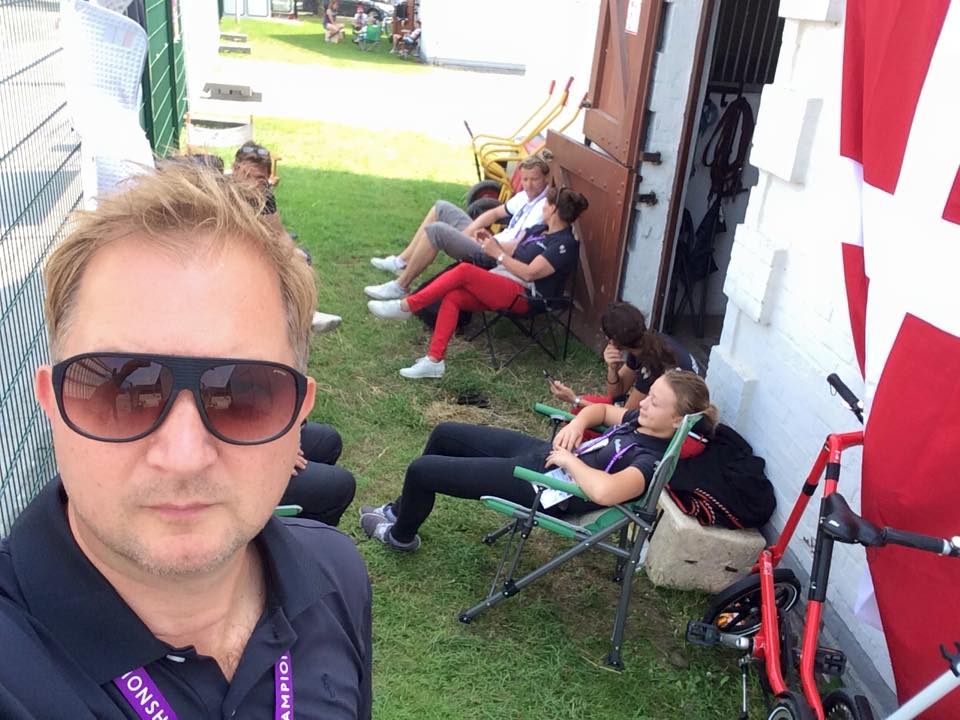
“Inspire the girls to dream.”
On the more practical level, I speak daily with our employees that are in charge of our social media management on Facebook, Instagram, Twitter, podcast and our main website. Partly because I’m working a lot with the concept of Social Selling.
Read Nicolai Kaas Nordstrøm’s Answer In Danish ??
Jeg har tæt kontakt til de mange politikere der arbejder i forskellige organisationer der arbejder rundt omkring kvindefodbold og kvindeligaen. Jeg har hele tiden den mission: Hvordan kan jeg øge opmærksomheden til kvindeligaen og hvordan kan vi gøre os endnu mere attraktive overfor publikum, medierne og erhvervslivet. Alt vores arbejde skal skabe en stærk liga, hvor det også er attraktivt at være spiller og klub. Vores fælles mission, som er udviklet i samarbejde med klubberne og UEFA: Inspirer piger til at drømme. På det mere lavpraktiske har jeg rigtig meget dialog med medarbejderne omkring vores journalistiske vinkler på vores sociale medier: Facebook, Hjemmesiden, Podcasts, Instagram, Twitter mv. Bla. fordi vi arbejder meget med begrebet Social Selling.
Tell us about your journey to reaching your current position. What were your greatest obstacles and how did you overcome them?
I always have it as my goal that I will only work on what I think is fun and exciting. I’ve always wanted to be part of something that makes a difference and leads to results. As a commercial manager in various sports industries, such as handball, horse racing, and of course football, I’ve been able to do that.
At the same time, I have always been very focused on expanding my network which have created many opportunities in my career. My approach to developing the workplaces I have been at is based on knowledge, common sense, experience, and network. This can be a challenge in the sports industry, as many make decisions with the heart and passion while not with knowledge and experience.
Read Nicolai Kaas Nordstrøm’s Answer In Danish ??
Jeg har altid haft en målsætning: Vil kun arbejde med noget jeg synes er sjovt og spændende og har altid haft den målsætning at jeg vil være med til at skabe forandringer og resultater. For at komme i den position jeg er i dag, har jeg skabt gode resultater i mine roller som kommerciel chef i flere forskellige sportsgrene, håndbold, hestesport og fodbold. Jeg har også altid været meget bevidst om at pleje mit netværk og arbejde med mit netværk, hvilket faktisk har skabt mig mange muligheder og åbninger i min karrierer. Min tilgang til udvikling af de arbejdspladser jeg har været på, er baseret viden, fornuft, erfaring og netværk, hvilket kan være en udfordring i sportsbranchen, da mange tager beslutninger med hjertet og ikke ud fra viden, erfaring og fornuft. Selvom jeg tit har været fortvivlet over at arbejde med frivillige og deres ikke professionelle tilgang og hjerte beslutninger, så har jeg været god til at tilpasse mig, hvilket nok også er en af årsagerne til min succes på mine arbejdspladser i sportsbranchen.
Managing a sport league almost always comes with challenges given the unpredictable nature of sport. Talk about how you overcome these challenges and have learned not to be hard on yourself for stuff that is probably beyond your control.
The most important task while being in my position is to keep on track with the strategy and keep going after the goals that have been set out from the beginning. For example, working with volunteers: listen to them, let them be integrated in the process, and most importantly give them faith in the strategy and our own values.
Read Per Rasmussen’s Answer In Danish ??
Det vigtigste i min position er at holde fast strategien og de målsætninger der er planlagt. Som tidligere nævnt og det at arbejde med eksempelvis frivillige, så lyt til dem og lade dem være med i processerne men meget vigtigt, at huske at være tro mod strategien og egne værdier.
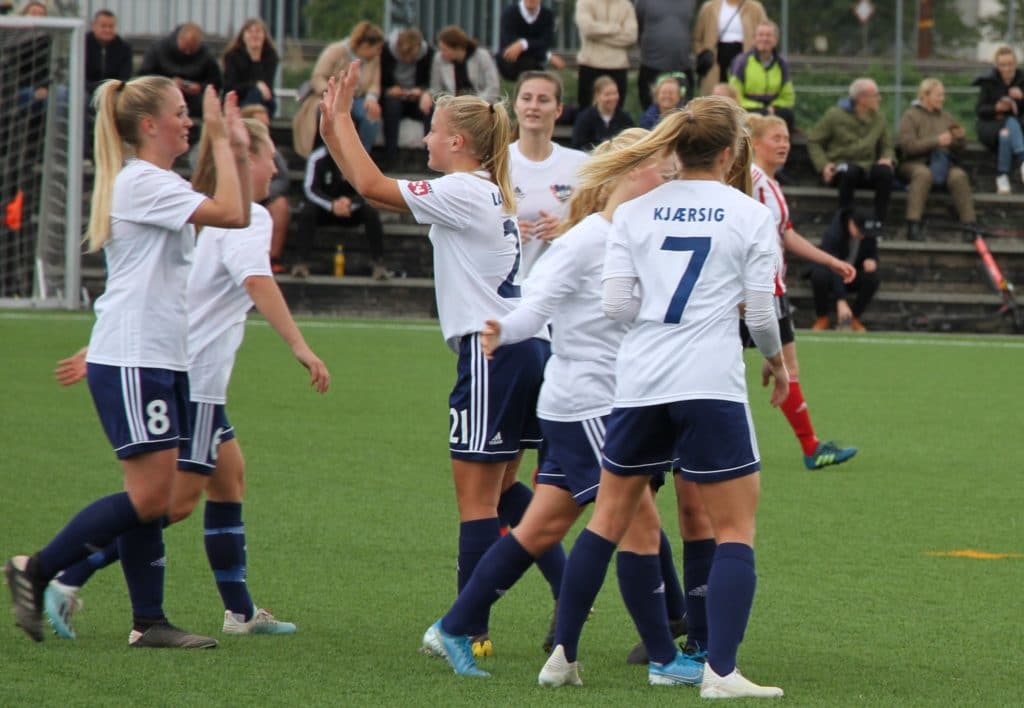
What is the biggest difference between working with the national women’s league and working with the national men’s league?
In the women’s league, we work mainly with development and are in a position where we have to build up a league. That puts us in a different position than the men’s league overall. When we are working on making the clubs more professional, are the players still playing with the heart and not because they are over/well paid which is also a big factor that differs from the male players.
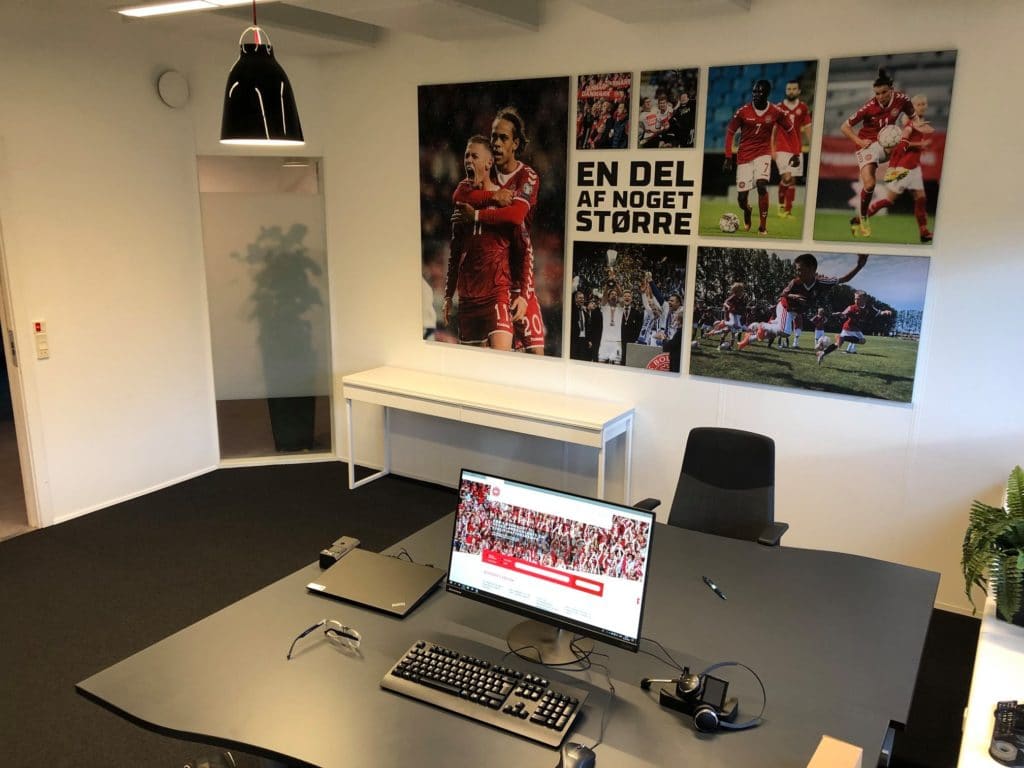
Read Nicolai Kaas Nordstrøm’s Answer In Danish ??
Det at vi i kvindeligaen er under udvikling og i en position hvor vi skal og kan opbygge, så stiller det os helt anderledes end ligaen for mænd. Selvom vi arbejder på at gøre klubberne mere professionelle, så spiller pigerne og kvinderne i ligaen med hjertet og ikke fordi de er over- eller velbetalte, hvilket også en kæmpe forskel kontra mændene.
Are you taking inspiration from other leagues around the world like in North America for example? And, is there something you think other leagues could learn from your league or other European leagues?
I’m taking a lot of inspiration from the female soccer leagues in North America. Not only because I have family there and have been there many times. The USA women’s football is doing very well and we can definitely learn something from how they are doing things and especially the respect the USA has for women’s football. I’m also looking at other European leagues like for example women’s La Liga in Spain. An organization where I also have a really good relationship with the CEO of the league Pedro Malabia. He was in Denmark when we launched the new Gjensidige Women’s league here in 2019 (Gjensidige Kvindeligaen is the name of the Danish Women’s Football League)
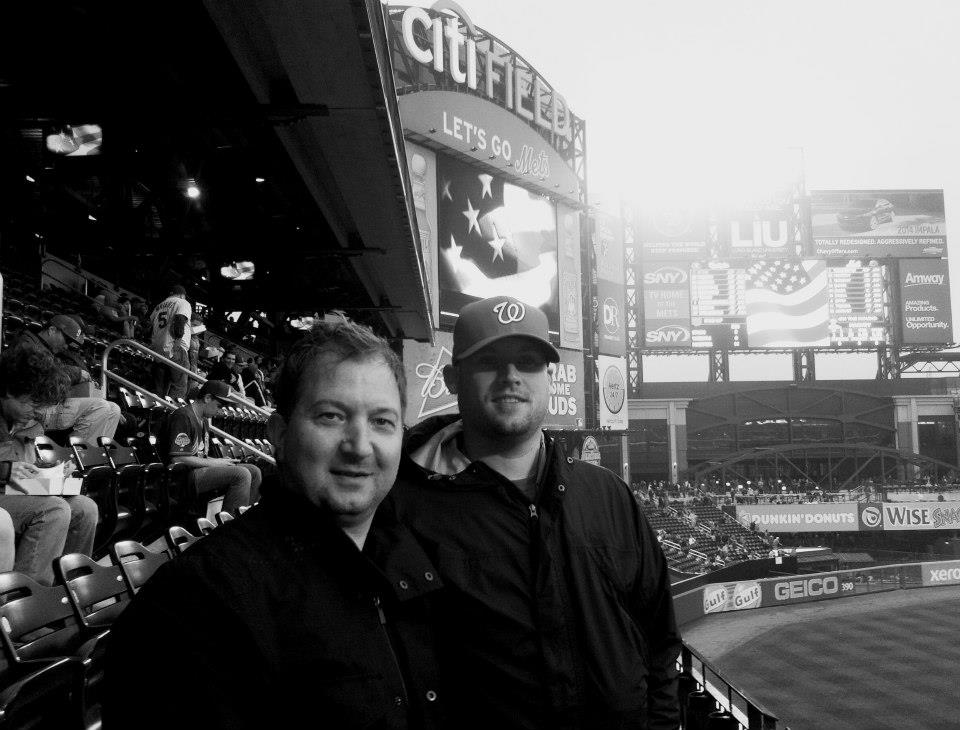
Read Nicolai Kaas Nordstrøm’s Answer In Danish ??
Jeg ser meget mod USA også fordi jeg har familie der og har været der rigtig mange gange, USA og kvindefodbold rimer godt på hinanden, vi kan helt sikkert bruge en masse fra USA og deres tilgang og respekt for kvindefodbold. Så ser jeg meget mod Spanien og LaLiga, har også fået et godt forhold til chefen for LaLiga, Pedro Malabia og han har været i Danmark i forbindelse med vores lancering af Gjensidige Kvindeligaen.
What is the overall plan and what are the most important goals that lie ahead for the Danish women’s league?
We are working under the mission:
Inspire the girls to dream.
And our goal is to become a league with professional standards as well as being a league that is attractive for players, clubs, spectators and businesses.
Read Nicolai Kaas Nordstrøm’s Answer In Danish ??
Vi arbejder med missionen: Inspirer piger til at drømme og vores mål er at blive en liga med professionelle tilstande og at blive en liga hvor det er attraktivt at være spiller, klub, publikum og erhvervspartner.
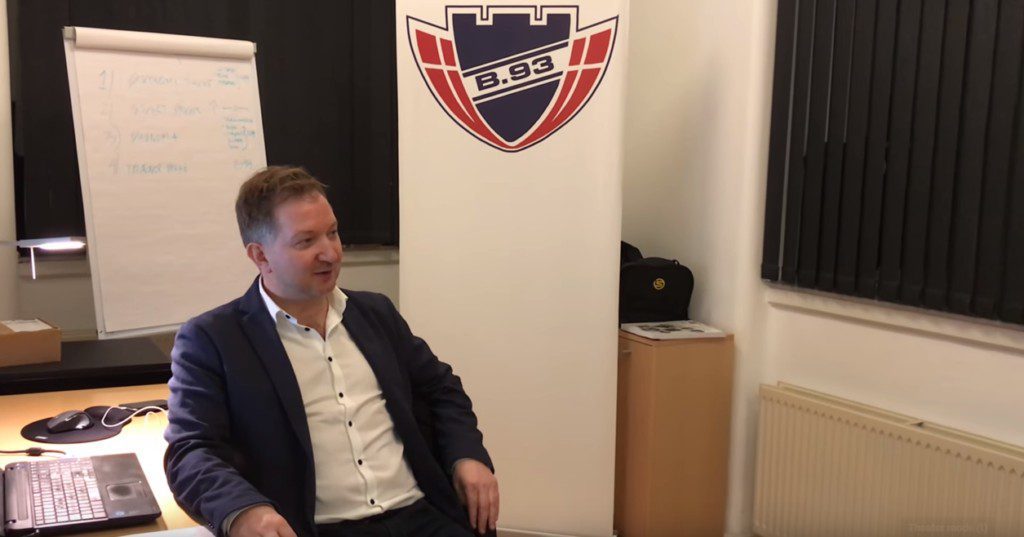
What are three essential skills someone needs to succeed in the sports industry?
1 Professional Sponsorship Management
It is important to act with the brain and not with the heart. It is important to work out of what is needed for your partners/clients. Don’t do what you think they want to have but listen to them for what they wish for with their sponsorship deal.
2 Listen To Your People
In the club where your employees and hundreds of volunteers are working, listen to them and show them that you willing to go the extra mile for them to make everything happen. If you can show them that then they will also be willing to help you which is probably the most important thing to create success.
3 Media Relations
Having a good relationship with the press is very important for having a positive image in the public eye. The sports industry gets a lot of publicity by the press because most of the country’s population has a keen interest in it.
Read Nicolai Kaas Nordstrøm’s Answer In Danish ??
På sponsorship og business delen er det vigtigt at tænke med hjerne og ikke hjertet, det er vigtigt at kunne arbejde ud fra behov og ønsker hos dine evt. nye partnere/kunder, ikke hvad du tror de vil, men lytte til hvad de har af ønsker og målsætninger med deres f.eks. sponsorship. I selve klubben (hos de mange frivillige og medarbejdere) lyt til dem og vis dem at du vil dem, så vil de også hjælpe dig. Dette har været et vigtigt element i min vej til at skabe succes. Få et godt forhold til pressen, de er vigtige i din vej til omtale og opmærksomhed. Sportsbranchen får meget opmærksomhed fra pressen, fordi mange har interesse for sport.
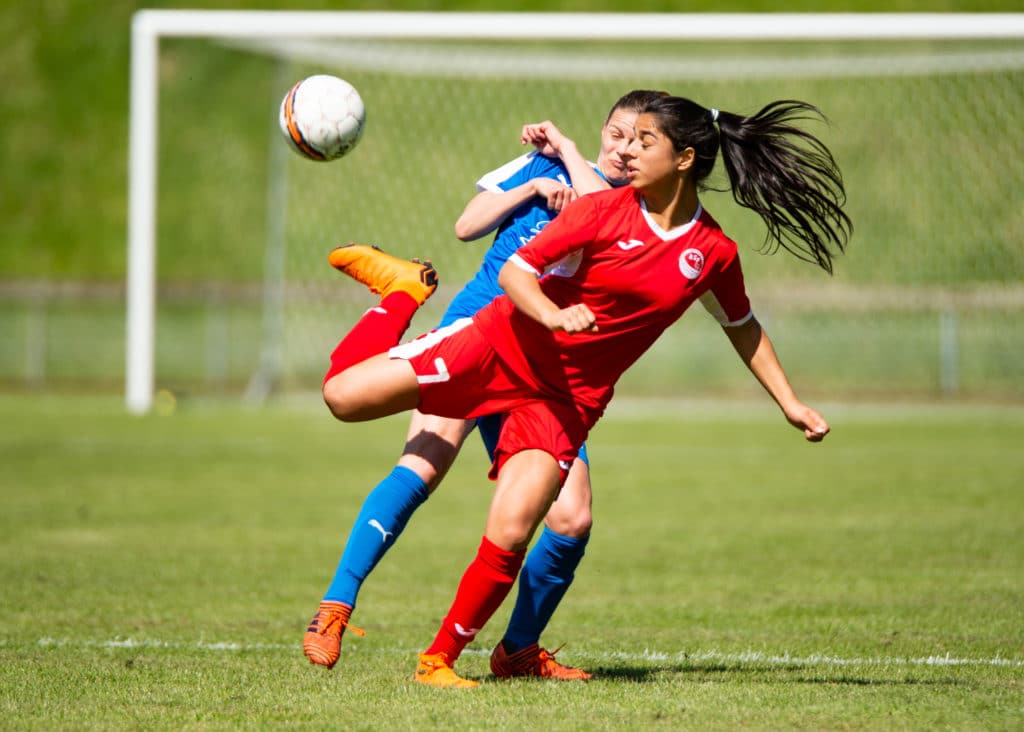
What advice would you give to recently graduated sport management students looking for their next opportunity and to find themselves in a similar position to the one you’re in?
Go out, get some experience, seek out the clubs or organizations. Use LinkedIn to tell everybody about yourself, your thoughts, your ideas and your results. Personally, I would advise you to use social selling of yourself.
Read Nicolai Kaas Nordstrøm’s Answer In Danish ??
Gå ud og få noget erfaring, opsøg klubber eller organisationer. Brug LinkedIn til at fortælle om dig selv og dine tanker, ideer og resultater. Personligt kan du også bruge Social Selling begrebet.
Mad’s Final Thoughts
As a closing thought, I’m very happy to see people like Nicolai taking the initiative to make women’s sport a priority. Not only do women add value to the world of sport, but as Nicolai says, “they also add ‘heart’.” Many of the women playing in professional leagues in Denmark don’t get paid the same amount as the men do, and their drive to play comes purely from the passion that they have of the sport. I would like to thank Nicolai for doing the important job that he is doing, and I will continue to support and follow him through his progress. I wish him nothing but success and I know that the women’s soccer league will be thriving in Denmark soon!
Nicolai Kaas Nordstrøm
Interview by Mads Schoening
Posted February 13, 2020 in Industry Profiles

